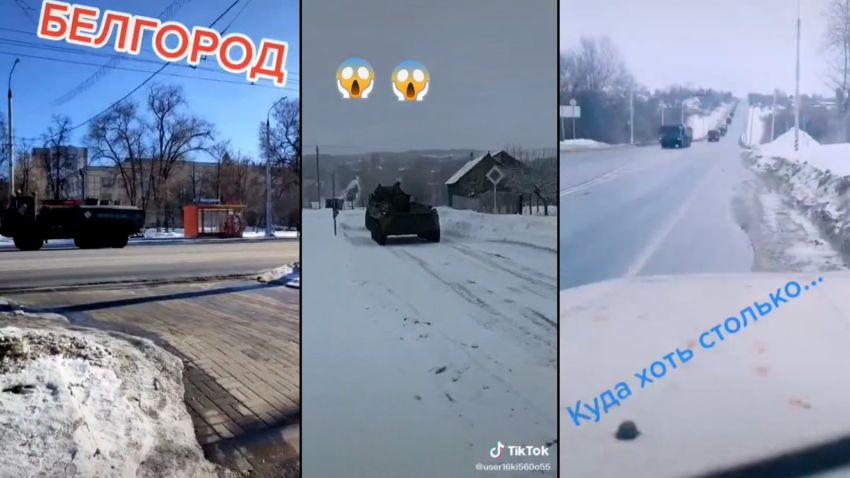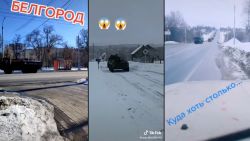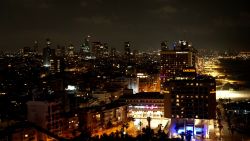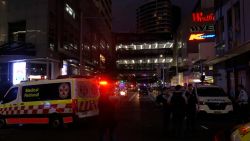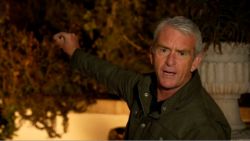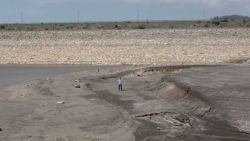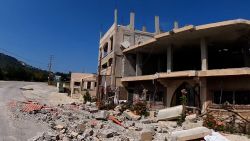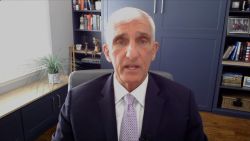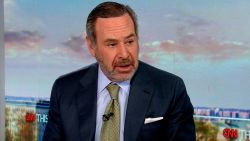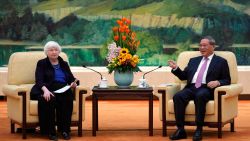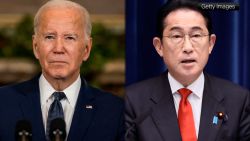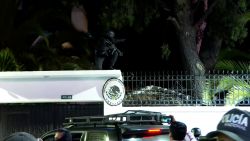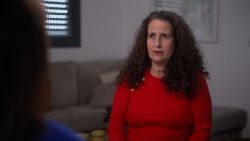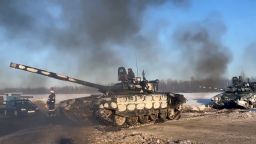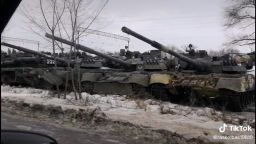President Vladimir Putin said Tuesday that Russia was sending some troops back to base after completing drills and that while he is open to further negotiations on the Ukraine crisis, Moscow’s security demands were an “unconditional priority.”
Russia’s claims about troop movements were met with skepticism from Western officials, who said they had seen no evidence that any partial withdrawal had begun.
United States President Joe Biden told reporters Tuesday that the US has “not yet verified the Russian military units are returning to their home bases,” saying that they “remain very much in a threatening position.”
Speaking earlier at a news conference in Moscow alongside German Chancellor Olaf Scholz, Putin said he continued to view Western deterrence measures as a “direct and immediate threat to national security.”
“The responses we received from the United States and NATO members to security guarantees proposals, in our opinion, do not meet the three basic Russian requirements,” Putin said.
“We are ready to continue this joint work further. We are also ready to follow the negotiation track but all issues must be considered as a whole, without being separated from the main Russian proposals, the implementation of which is an unconditional priority for us.”
Biden said Tuesday that Russia has amassed “more than 150,000 troops circling Ukraine and Belarus, and along Ukraine’s border,” underscoring fears from Western and Ukrainian intelligence officials that an invasion could be imminent.
Among the Kremlin’s demands are a guarantee that Ukraine will never be permitted to join NATO and that the alliance roll back its expansion in Eastern Europe. The US and its NATO allies have repeatedly said such proposals are non-starters.
Putin also invoked the word “genocide” Tuesday to describe the situation in territories in eastern Ukraine controlled by Russian-backed separatist militants, calling out the West for what he insinuated was a double standard for justifying military intervention. Claims of discrimination against Russian-speaking populations in Ukraine were one of the justifications Russia used when it annexed Crimea in 2014.
Putin’s comments came hours after the Russian defense ministry said some troops from its Southern and Western military districts had begun to return to their home stations.
The announcement did not specify where those troops were permanently based, where they had been exercising, or how many of them were withdrawing, and it was viewed with skepticism by officials from Ukraine, the US and NATO, who called on Russia to provide proof it was willing to deescalate the crisis on the border.
“Various statements are constantly being made from the Russian Federation, so we already have a rule: ‘Do not hear and then believe. But do see and then believe,’” Ukrainian Foreign Minister Dmytro Kuleba told a news conference in Kyiv. “When we see the withdrawal, then we will believe in de-escalation.”
NATO Secretary General Jens Stoltenberg said the alliance had not yet seen “any sign of deescalation on the ground,” but added that “signs from Moscow that diplomacy should continue” were grounds for cautious optimism.
Personnel from Russia’s Southern military district began returning to base from Crimea – the territory annexed by Russia from Ukraine in 2014 – following the conclusion of exercises, state news agency RIA-Novosti reported Tuesday, citing Southern military district spokesperson Col. Vadim Astafyev.
“The personnel of the battalion tactical groups made marches to the areas of railway stations, where the loading of military equipment on the echelons is organized. Heavy tracked armored vehicles – tanks, infantry fighting vehicles and self-propelled artillery – are fixed on the platforms of the wagons, Astafyev said.
Earlier Tuesday, Major General Igor Konashenkov, spokesman for the Russian defense ministry, announced the troop movements but also added that large-scale drills would continue.
“In the armed forces of the Russian Federation, a complex of large-scale operational training measures by the forces continues, with almost all military districts, fleets and airborne troops taking part in them,” he said. “As part of the test of the reaction forces of the Union State, a joint Russian-Belarusian exercise ‘Allied Resolve-2022’ is being held on the territory of the Republic of Belarus.”
Konashenkov also said a series of naval drills – involving surface ships, submarines and naval aviation – was underway both in “operationally important areas of the world’s oceans” and in the waters adjacent to the territory of Russia. “Exercises are continuing with formations and military units at other training grounds on the territory of the Russian Federation,” he added.
Meanwhile on Tuesday, a cyberattack hit the websites of Ukraine’s defense ministry and armed forces, and the websites of two Ukrainian banks.
It was not immediately clear who was responsible for the hacking incident.
‘Still time to step back from the brink’
The Kremlin’s troop announcement came a day after Russian Foreign Minister Sergey Lavrov said there was still room for a diplomatic solution to the crisis.
In a carefully choreographed meeting that was shown on Russian television on Monday, Putin asked Lavrov: is there a “chance to reach an agreement with our partners on key issues that are of concern to us, or is it just an attempt to drag us into an endless negotiation process that has no logical resolution?”
Seated at the opposite end of a very long table, Lavrov responded: “If we are ready to listen to some counter-proposals, it seems to me that our possibilities are far from being exhausted.”
NATO’s Stoltenberg on Tuesday expressed hope that a war could be avoided, but said the alliance would not compromise on its core principles.
“Everything is now in place for a new attack, but Russia still has time to step back from the brink, stop preparing for war and start working for a peaceful solution,” Stoltenberg told a news conference in Brussels on Tuesday.
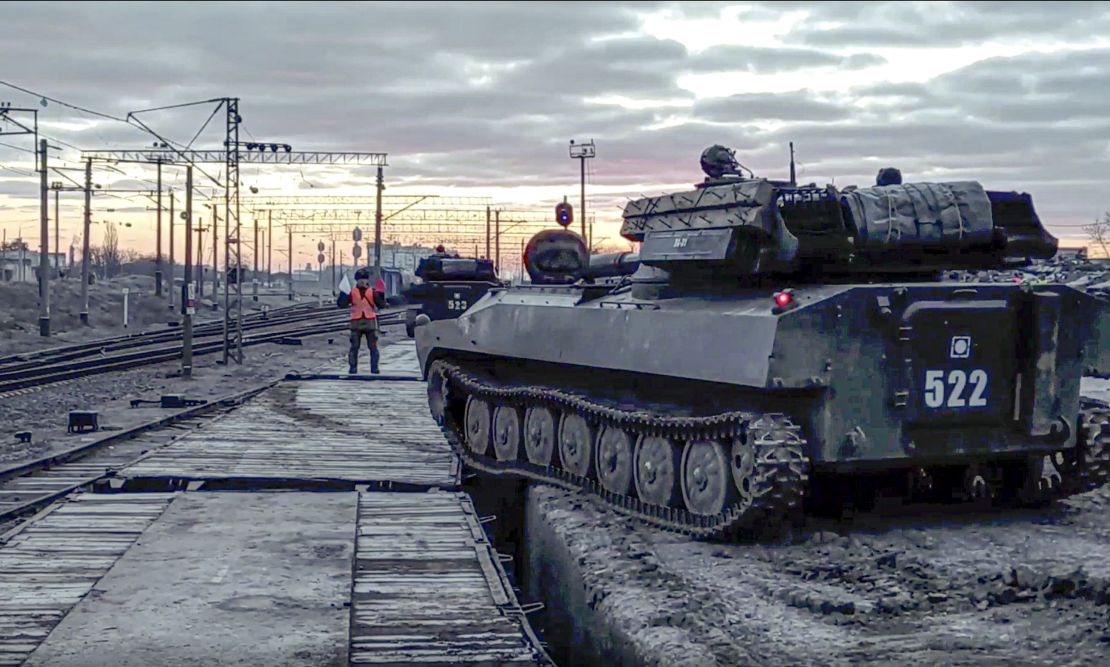
The flurry of high-profile diplomacy continued Tuesday with Scholz becoming the latest leader to travel to Moscow for talks.
Scholz, who was meeting Putin for the first time as the German Chancellor, said it was the leaders’ “damned duty to prevent a war in Europe.”
“For us Germans, but also for all Europeans, it is important that sustainable security cannot be achieved against Russia, but only with Russia,” Scholz said.
However, while Scholz was urging de-escalation, he didn’t shy away from criticizing Russia, specifically mentioning the jailed opposition leader Alexey Navalny, who is currently facing another trial. “As far as Mr. Navalny is concerned, my position is very clear, this is not compatible with the principles of the rule of law.”
Meanwhile, US ambassador to NATO Julianne Smith said Tuesday the US was “monitoring the situation” after the Kremlin’s troop announcement, but added that the US “will have to verify” any claims of a potential move towards deescalation by Russia.
“We have noticed today that Russia is claiming that they are moving towards some sort of de-escalation. We are monitoring the situation,” Smith said. “We will have to verify whether or not that is in fact the case.
Speaking during a press briefing in Brussels, the US ambassador further noted that Russia “made a similar claim” regarding a potential de-escalation of tensions in December, but this later proved false.
But while the Kremlin was talking about troops returning home, satellite images released by Maxar Technologies revealed fresh signs of a Russian buildup.
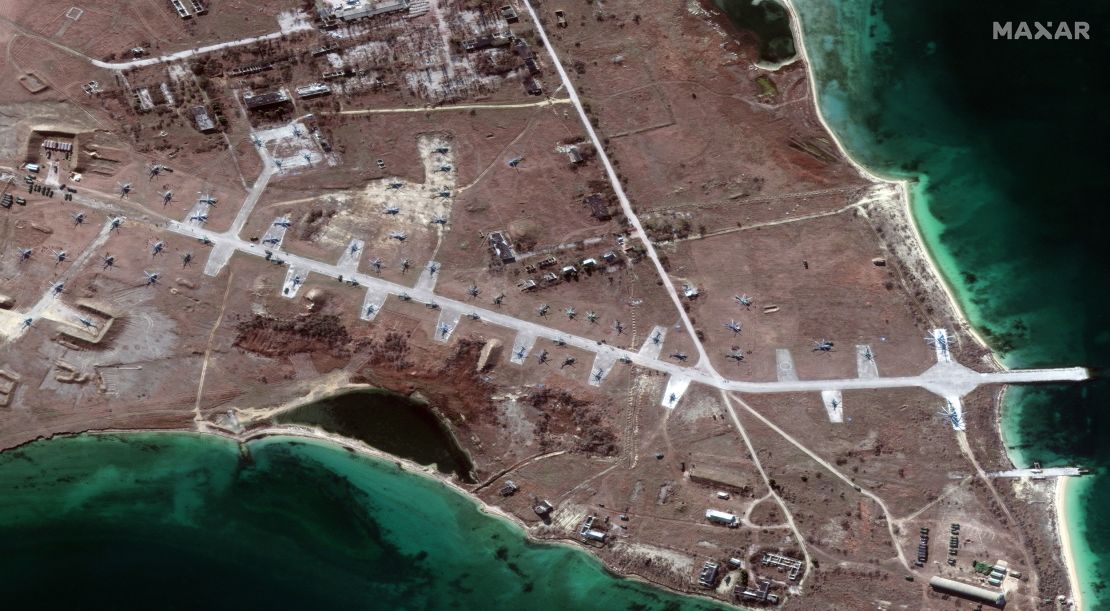
An analysis of the images showed that at least 60 helicopters had landed within the past few days at a previously vacant airbase in Russian-occupied Crimea.
The helicopters are a mixture of transport and attack aircraft. Archival satellite imagery reviewed by CNN indicates the base at Donuzlav Lake on the northwest coast of Crimea has been vacant since at least 2003.
UK Prime Minister Boris Johnson told reporters Tuesday that he was not encouraged by the latest intelligence on Russia’s buildup around Ukraine and said western leaders were receiving “mixed signals” from Moscow.
“We’ve got Russian field hospitals being constructed near the border with Ukraine, in Belarus for [what] only can be construed as a preparation for an invasion,” Johnson said. “You’ve got more battalion tactical groups actually being brought closer to the border with Ukraine, according to the intelligence that we’re seeing.”
Kremlin spokesperson Dmitry Peskov gave a noncommittal response Tuesday when asked about a move by Russian lawmakers to appeal to President Putin to recognize two breakaway regions in eastern Ukraine as independent. Donetsk and Luhank have been controlled by pro-Russian separatists since 2014.
Asked in a conference call with reporters about the legislative action, Peskov said: “No one remains indifferent to the fate of Donbas. But still, Russia has repeatedly declared that it remains committed to the Minsk package of measures, and that Russia is in favor of the implementation of the entire Minsk plan as soon as possible, in the sequence that exists.”
Donbas refers to the territories in eastern Ukraine controlled by Russia-backed separatist militants.
Asked about the issue during the news conference with Scholz, Putin said there were “mass and systematic violations of human rights in Ukraine and outright discrimination of Russian speaking citizens on legislative level.”
Putin responded abruptly when Scholz expressed hope for a peaceful resolution in Ukraine, after recalling NATO’s military intervention in response to the danger of genocide in the former Yugoslavia. “According to our estimates, what is happening in the Donbas today is genocide,” Putin responded.
Putin has spoken repeatedly about what he describes as the violation of the rights of ethnic Russians and Russian speakers in Ukraine and elsewhere, and has stated that it is within Russia’s rights to intervene militarily to protect them.
It was not the first time he’s used the word “genocide” to describe what he calls Russophobia or discrimination against Russian speakers in eastern Ukraine. It’s a term – much like the word “fascist” – that can be thrown around loosely in Russian political speech and does not necessarily imply direct comparison to internationally defined and recognized cases of genocide.
CNN’s Uliana Pavlova, Darya Tarasova and Nathan Hodge reported from Moscow, while CNN’s Ivana Kottasová, Tim Lister, Jim Sciutto and Olga Voytovich reported from Kyiv.

